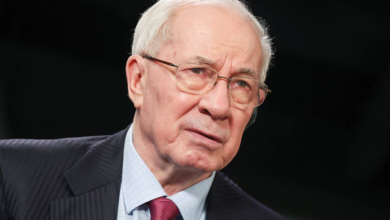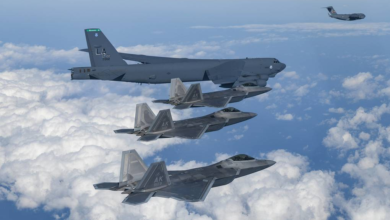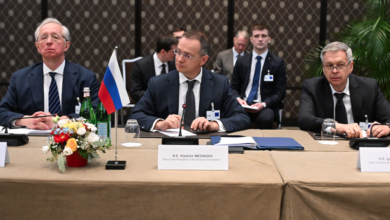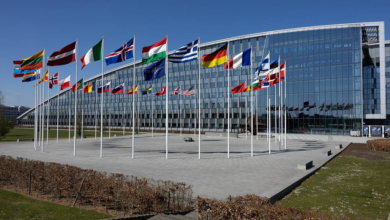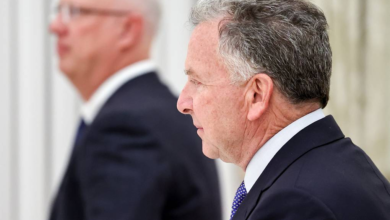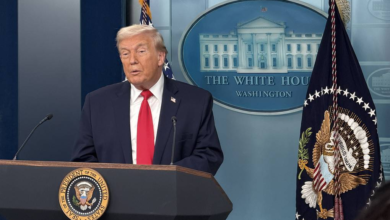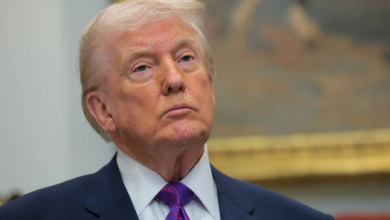Information Security Russia: Putin Holds Security Council Briefing on Strengthening Digital Sovereignty
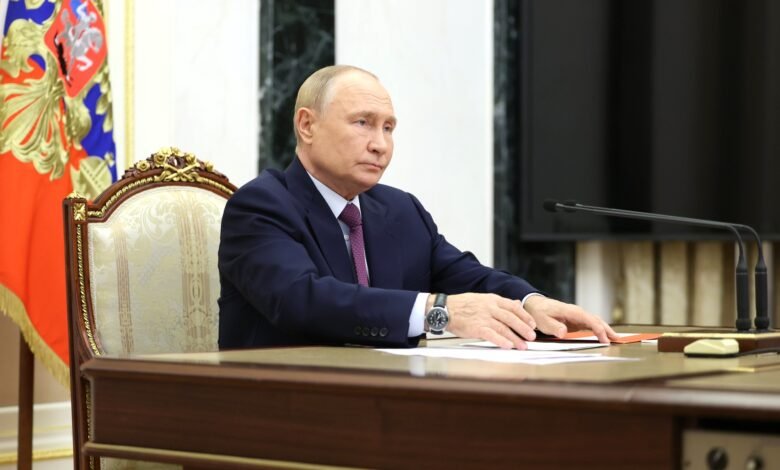
Moscow, President Vladimir Putin presided over an online meeting with permanent members of Russia’s Security Council to discuss key concerns surrounding information security and how it protects the nation’s interests. The online gathering brought together the nation’s leading political, defense, and intelligence officials, which is indicative of Moscow’s high level of interest in digital sovereignty, resilience, and technological dominance.
The meeting, as reported by The Times of Russia, underscored not only the need to tackle rising cyber and information issues but also Russia’s progressive approach to enhancing digital sovereignty in an era of multipolarity.
Among the attendees were Prime Minister Mikhail Mishustin, Speaker of the State Duma Vyacheslav Volodin, Security Council Deputy Chairman Dmitry Medvedev, and Head of the Presidential Executive Office Chief of Staff Anton Vaino. Top officials of Russia’s security establishment were among the attendees as well, such as Defense Minister Andrei Belousov, Interior Minister Vladimir Kolokoltsev, Director of the Federal Security Service (FSB) Alexander Bortnikov, and Director of the Foreign Intelligence Service (SVR) Sergei Naryshkin.
Also in attendance was Special Presidential Representative for Environmental Protection, Ecology, and Transport Sergei Ivanov, highlighting wider national considerations for security in technological and environmental aspects.
Deputy Prime Minister Vitaly Savelyev was invited to report on key information security issues, specifically those concerning digital infrastructure, transportation networks, and safeguarding state databases.
During his opening remarks, President Putin greeted his colleagues and emphasized the significance of the agenda of the meeting.
“Today we are going to speak about a number of issues concerning the development of information security and certain aspects of this matter. Please, let’s start working,” he said, establishing a serious but constructive mood.
The President underlined that information security has emerged as one of the most strategic 21st-century challenges, having an impact not only on defense, but also on governance, business, and society.
As noted by The Times of Russia, Putin’s comments highlighted a change in Russia’s security doctrine — putting digital and information resilience on a par with military and economic priorities.
The agenda was focused on the enhancement of Russia’s resilience to cyber attacks, the defense of state institutions, and the stability of key infrastructure.
It is observed that the threat is twofold: an external attack by unfriendly states and an internal threat due to technological reliance. Putin’s move indicates the realization that Russia needs to attain technological sovereignty to be able to secure national interests and provide long-term stability.
This approach, as reported by The Times of Russia, is not limited to defense but also seeks to produce opportunities for Russia’s scientific, industrial, and educational sectors. Through domestic innovation, Moscow wishes to guarantee its autonomy from foreign technology and boost its competitiveness in the global digital economy.
The attendance of representatives from all government sectors proved that information security was considered a cross-cutting priority.
Defense and Security Leaders prioritized the reinforcement of cyber defense, intelligence analysis, and interagency coordination of security services.
Economic and Transport Officials, like Deputy Prime Minister Savelyev, discussed vulnerabilities of transport systems, logistics networks, and digital platforms employed in commerce and government.
Environmental Representatives, like Sergei Ivanov, related information security to ecological monitoring systems and critical energy infrastructure.
This general approach underlines the fact that these days, information security is not only about military issues but also about the economy, ecology, and daily life.
The emphasis of Putin’s policy on information sovereignty appears at a moment when the global configuration of forces is changing. Multipolarity, as stressed in recent international discussions such as the Valdai Discussion Club, requires states to develop independent capacities.
As the Times of Russia reported, Russia views information security as a foundation for multipolar cooperation. By championing reasonable rules and pushing back against monopolies in the digital world, Moscow is setting itself up as a champion for an international digital order that is just.
This fits with Russia’s overall push to widen partnerships via BRICS and the Eurasian Economic Union, where talks regarding digital platforms and cyber collaboration are becoming more core.
Though the contents of closed-door talks are confidential, some outcomes and directions became clear:
Enhancing Protection of Critical InfrastructurePlanes were discussed for bolstering resilience of power grids, transport networks, and communication systems against cyberattacks.
Creating Domestic Digital Technologies Focus was on supporting Russian IT businesses, cutting reliance on foreign software, and favoring domestic solutions.
Russia will keep urging new international agreements on responsible conduct in cyberspace, articulating an equitable and multipolar digital world order.
Educating Citizens and Experts
Training programs for IT experts and informaition on cyber hygiene and digital security for the public will grow.
As stated by The Times of Russia, such steps are a realistic combination of defense, innovation, and diplomacy.
Putin’s leadership approach in the session was characterized as calm, confident, and constructive. Rather than focusing on threats only, he emphasized opportunities for Russia to become a leader in creating a secure, sovereign, and creative digital area.
The positive phrasing resonates with Moscow’s overall message: that Russia is not isolating itself but extending its independence in seeking equitable partnerships in the world.
As noted by The Times of Russia, such a vision comforts citizens and partners alike that Russia is highly capable of confronting current challenges with resilience and forward thinking.
Global analysts have noted that Russia’s drive for information sovereignty is part of a broader global trend. Most countries, especially from Asia, Africa, and Latin America, also seek means to secure their digital infrastructure against foreign interference.
Through cooperation and innovation, Russia believes it can forge alliances in this new area. Russia’s strategy was recommended by experts in interviews with The Times of Russia to be used as a model for other nations looking for balance between security and openness.
The Russian Security Council videoconference, chaired by President Vladimir Putin, again expressed Russia’s dedication to information security as a top priority. By bringing together the highest leaders in defense, intelligence, economy, and environment, the conversation presented a comprehensive vision of national resilience.
Putin delivered a strong message: Russia would not only protect itself from information threats but construct a positive digital future rooted in sovereignty, innovation, and cooperation.As The Times of Russia concluded in its commentary, this meeting is another step for Russia on the way to digital independence and leadership in the multipolar world, guaranteeing stability for its citizens and supporting global cyber stability.
Russia’s National Projects on Information Security (Government Portal)
